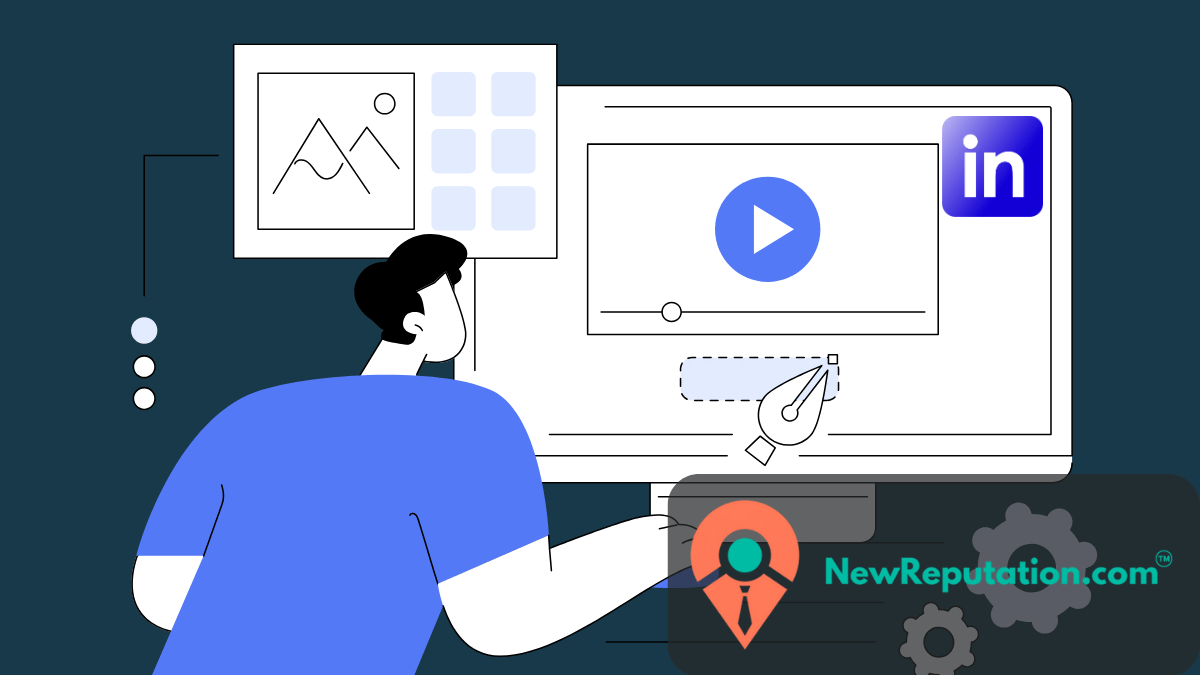LinkedIn Premium is a premium service that says it will help your career. But are the LinkedIn premium advantages worth the price? Should you remain with the free tools that come with a basic LinkedIn account?
Let’s see.
What is LinkedIn Premium?
LinkedIn is the biggest site for professionals to connect with each other. For 18 years, it’s been free to use. They started delivering premium services in 2005, and since then, those services have only gotten better and more varied.
If you’re looking for a job, a recruiter, or ways to boost your business’s sales, you should sign up for LinkedIn Premium. It gives you access to a lot of useful tools. The price of LinkedIn Premium, on the other hand, can be high, ranging from $29.99 to $99.99 each month, depending on the level you choose.
We’ll look at each level below. But first, let’s look at some important LinkedIn Premium features that come with any premium membership.
InMail
You can use InMail to get in touch with any LinkedIn user, even if you don’t know them. This is helpful if you’re trying to get a job or fill a job. It’s also great for salespeople. They can get in touch with potential clients who might have been hard to approach otherwise.
InMail uses credits, and each premium tier gives you a specified number of credits each month. InMail is only for ad campaigns and things like that. You can also utilize it to build more valuable connections with certain people.
People Who Look at Profiles
You can see who is looking at your account in all of the premium tiers. If you’re looking for a job, this could help you find the best candidates. If a certain company keeps looking at your profile, it might be a good idea to take the lead and get in touch.
And if you work in sales or recruiting, it can help you figure out which candidates or future clients are most interested in what you have to offer. You know they discovered anything interesting if they continually show up on your profile viewers list.
Learning on LinkedIn
LinkedIn’s online learning portal has more than 15,000 courses taught by experts. You can see all of them if you have a premium account. The topics include everything business-related, from Quickbooks 101 to the finest ways to sell.
Some of the classes on LinkedIn Learning that teach skills could help you get forward in your job. You can learn about certain programs, like Google Apps or Adobe. You could also study Python or another programming language. These things can help you get a job and make you better at your existing job.
Getting Ready for an Interview
LinkedIn Premium’s Interview Prep function is also available to premium customers. This section has a library of articles full of expert interview suggestions and lists of questions to practice with.
You may even record yourself answering questions in a fake interview. You can also ask for criticism, which is very important for figuring out how to do better.
You can email your interview to the first person you choose on LinkedIn, or you can use its AI-powered feedback generator to get useful information about how you answered the questions.
Premium Plans for LinkedIn
Now that we know the basics, let’s take a closer look at the different LinkedIn programs. There are four levels of LinkedIn Premium, and you may try each one for free for 90 days when you sign up.
LinkedIn Career
LinkedIn Career is for people looking for jobs, starting with the lowest level. You get all of the aforementioned features plus 3 InMail credits with a subscription at this level. You can also see applicant insights, which let you compare your qualifications to those of other job seekers.
You can also get pay information for positions that are open without having to give out any personal information. And you’ll be able to see employment openings that you would be a good fit for.
LinkedIn for Business
LinkedIn Business is perfect for people who own or want to start a business. It costs a little more than LinkedIn Career and comes with 15 InMail credits and all the usual features.
Plus, you’ll be able to use Business Insights to get more information about a company’s growth and current trends. Career Insights will also help you compare job candidates.
Both can help you meet new people and find new talent. If your business uses LinkedIn heavily, you might also explore LinkedIn Ads for lead generation.
Sales on LinkedIn
LinkedIn Sales is the next level up. It gives you 20 InMail credits and other features. You will be able to use a separate sales interface and a powerful search tool made just for finding leads.
Once you find those leads, you can use LinkedIn Sales’ custom lead and account list functionality to put them in order. You’ll also get useful notifications and information about big changes in your network.
Hiring on LinkedIn
Recruiters can use the top tier of LinkedIn Premium. This level comes with all the basic features and 30 InMail credits. It also has extensive search capabilities that help recruiters find and filter down their best applicants.
LinkedIn Hiring features its own interface that lets recruiters keep track of candidates and arrange their candidate pools.
So, is it worth it?
It depends on what you want to know if you’re trying to decide between LinkedIn Premium and the free version.
You can be looking for a new job and really want to get one. If that’s the case, getting a LinkedIn Career subscription might not be a bad idea. It will help you get in touch with hiring managers quickly and improve your interview abilities.
If you operate a business, are a recruiter, or are a salesperson, the benefits of LinkedIn Premium may or may not be worth the monthly premium. It depends on what kind of business you are in.
If most of the people in your network use LinkedIn, the service might soon pay for itself by helping you find new clients and employees. But if your field uses alternative ways to network, the services may not be worth the monthly charge.
You can always give it a try if you’re not sure. You have plenty of time to see if LinkedIn Premium is worth it during the 90-day free trial. And if it’s not, you can cancel LinkedIn Premium anytime.

Delphia is the staff writer for the NewReputation Help Center, Sales & Service blog. She has a background in content creation and writes clear, informative articles on reputation management, online visibility, trust building, and how they relate to each other. As an efficient writer who produces high-quality content, Delphia assists with a variety of editorial projects. When she is not working, you can find her traveling, taking pictures, or reading a good book.

